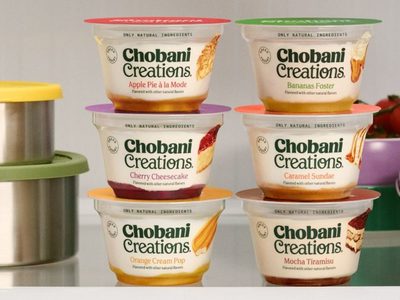DUIVEN, THE NETHERLANDS — Protein claims are gaining muscle in yogurt launches, with more than a third of U.S. introductions over the past year positioned as high in the nutrient, according to market research firm Innova Market Insights.
Globally, that figure drops to more than 10% of launches in the year ended September, with just over 6% in Western Europe.
The Greek yogurt boom in the United States has bred an interest in protein content, which has superseded probiotic messaging on yogurt products, Innova said.
“The rise of Greek and Greek-style strained yogurts, which are inherently higher in protein than standard lines, has paved the way for the positioning of yogurts on a high-protein platform,” said Lu Ann Williams, director of innovation at Innova Market Insights. “Although most of these are also ‘probiotic,’ once also a key marketing positioning, problems over health claims in this area have caused companies to divert attention away from digestive health in many instances; often toward nutrient content. This has tended to lead to a focus on the higher protein content of Greek-style products, alongside the traditional focus on their creamy and indulgent image.”
Companies have positioned protein as a means of sustained energy and satiety, an important food attribute for 87% of U.S. consumers, according to Chicago-based market research firm Mintel International.
Food makers are championing protein’s benefits in muscle recovery and performance, appealing to aging consumers and athletes alike. In the yogurt market, a subcategory known as “brogurt” has emerged, with a number of new introductions designed to appeal to active men. Powerful Yogurt in March introduced its male-targeted line of Greek yogurt, which features masculine packaging and 25 grams of protein per 8-oz cup.
Even non-Greek-style yogurts are emphasizing high protein contents. This year’s launches with prominent protein labeling include ProYo, a frozen yogurt product with 20 grams of protein per serving, and Smari Icelandic yogurt, with 17 to 20 grams of protein per serving. For children and teenagers, General Mills this year added a squeezable variety of Yoplait Go Gurt that offers twice as much protein as the original product.
“With high-protein foods one of the most sought-after nutritional choices at the moment, and the need for strained yogurt to find new ways of promoting itself in the wake of difficulties over the ‘Greek’ descriptor in some instances, the high-protein yogurt market seems ripe for further development,” Ms. Williams said.


